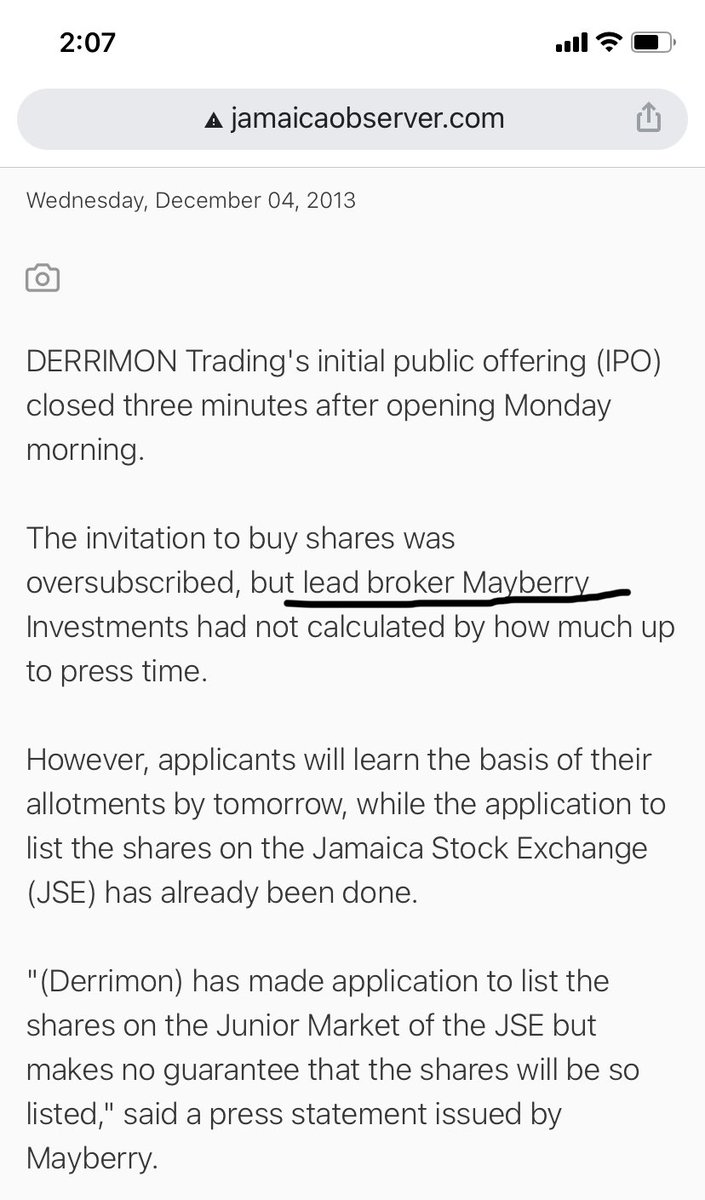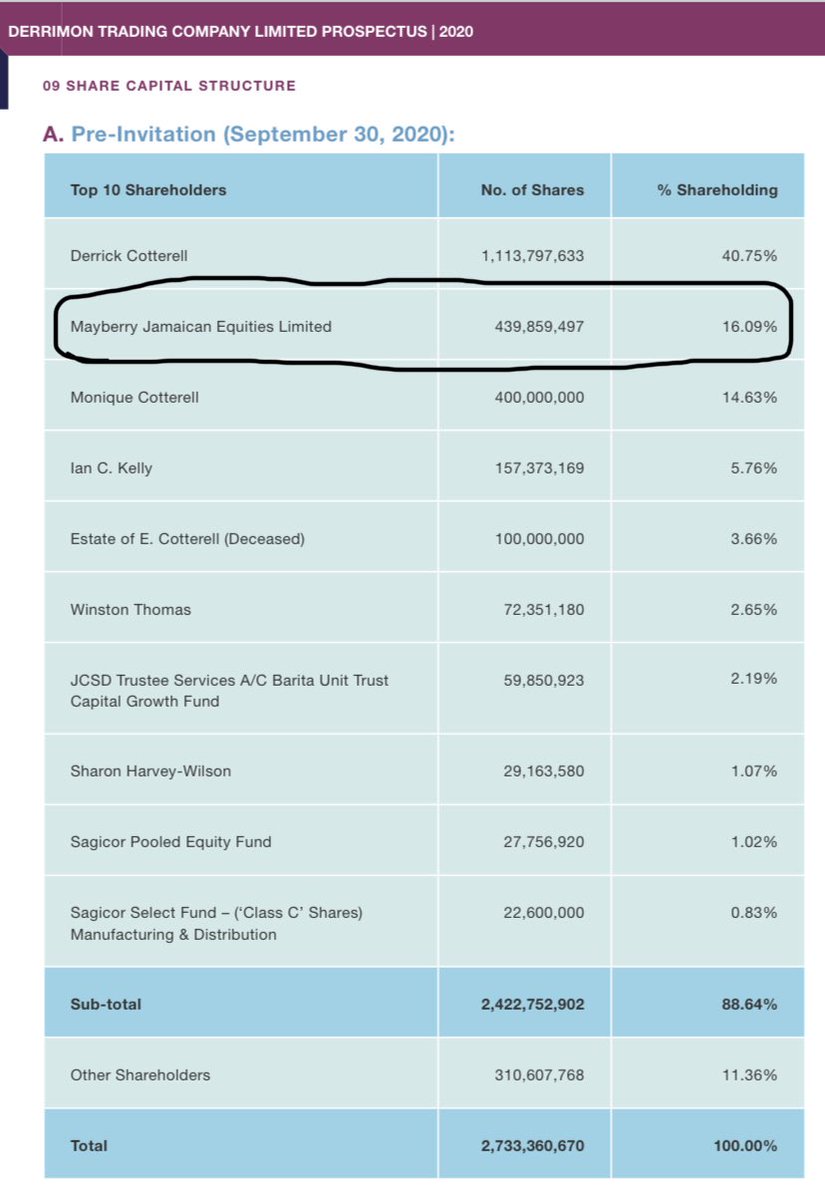
4. Employment Growth via MSME Growth
These initiative are close to my heart, because I run a SME and advise a number of entrepreneurs that do the same.
DBJ has a recently launched programme for qualifying MSMEs to get a $200,000 grant to be invested in a digital transition..
These initiative are close to my heart, because I run a SME and advise a number of entrepreneurs that do the same.
DBJ has a recently launched programme for qualifying MSMEs to get a $200,000 grant to be invested in a digital transition..
(which includes building out e-commerce functionality and digitizing internal processes and more), called the 'Go Digital' grant.
Under the SERVE Jamaica programme, GOJ is allocating $1B to the DBJ so that MSME's that qualify for the 'Go Digital' grant...
Under the SERVE Jamaica programme, GOJ is allocating $1B to the DBJ so that MSME's that qualify for the 'Go Digital' grant...
to also be eligible for up to $800,000 in 2% interest loans to be used to support the digital transition.
Under the SERVE Jamaica programme, $2B is allocated to seed two equity funds exclusively focused on providing equity financing to MSMEs.
Under the SERVE Jamaica programme, $2B is allocated to seed two equity funds exclusively focused on providing equity financing to MSMEs.
These will likely take the form of either Venture Capital or Private Equity Funds.
An additional $2B is allocated for lending to MSMEs (these details are to be fully announced).
I have had challenges accessing credit under DBJ underwritten facilities at DTIs...
An additional $2B is allocated for lending to MSMEs (these details are to be fully announced).
I have had challenges accessing credit under DBJ underwritten facilities at DTIs...
so the exact details of these facilities will make a big difference. I do know that the DBJ has taken the feedback given to them (I have personally given them feedback) and are in the process of revamping some of their facilities to make the funding more accessible to MSMEs.
While all of the above are good policies, they rely heavily on execution and implementation (which presents its own set of risks).
To me, the potentially much more significant policy for MSMEs that can help spur economic growth is seemingly the cheapest (only $70M)...
To me, the potentially much more significant policy for MSMEs that can help spur economic growth is seemingly the cheapest (only $70M)...
and could have an outsized impact. This policy change is the removal of the Customs Admin Fee (CAF) for permanent exports of values less than or equal to US$500.
As it stands right now, every export declaration has to pay J$3,000 regardless of value.
As it stands right now, every export declaration has to pay J$3,000 regardless of value.
In 2019/20, there were just under 43,000 export good declarations.
Of that number:
- 73% were for export by air, which represented 6% of the value of exports (i.e. these were likely small parcels).
- 27% were for export by sea, which represented 94% of the value of exports...
Of that number:
- 73% were for export by air, which represented 6% of the value of exports (i.e. these were likely small parcels).
- 27% were for export by sea, which represented 94% of the value of exports...
(i.e. these were likely large containers).
Of the ~43,000 export declarations, ~11,000 had a value of less than US$50 or J$7,000 and required a payment of $3,000 for each export. Another ~11,000 were between US$50 - US$500.
Of the ~43,000 export declarations, ~11,000 had a value of less than US$50 or J$7,000 and required a payment of $3,000 for each export. Another ~11,000 were between US$50 - US$500.
So a total of 22,000 (or more than 50% of all export declarations) were valued less than US$500.
This fee will be abolished, costing GOJ J$70M.
This single policy will allow international shipping via air to be significantly cheaper, for small packages and therefore MSME...
This fee will be abolished, costing GOJ J$70M.
This single policy will allow international shipping via air to be significantly cheaper, for small packages and therefore MSME...
offerings much more competitive.
Here are some of the tactics SMEs will now be able to employ in a sustainable way to drive growth:
- Faster shipping options (perhaps they can offer free shipping via Jamaica Post) or faster shipping for a fee (with some margin built in).
Here are some of the tactics SMEs will now be able to employ in a sustainable way to drive growth:
- Faster shipping options (perhaps they can offer free shipping via Jamaica Post) or faster shipping for a fee (with some margin built in).
Free shipping = 3 weeks, Paid Shipping = 3 - 5 days.
- Free shipping on orders over $X value (they make sure the increased revenue subsidizes the cost of the shipping).
- Buy One, Get One (BOGO) deals can now be more profitable.
- Free shipping on orders over $X value (they make sure the increased revenue subsidizes the cost of the shipping).
- Buy One, Get One (BOGO) deals can now be more profitable.
- They can now more reasonably participate in holiday specials in the markets of their customers (e.g. Black Friday in the US, or Independence Day in Canada, etc.).
- They can now reduce reliance on the post office for a chunk of their shipments...
- They can now reduce reliance on the post office for a chunk of their shipments...
which frees up time wasted dealing with that stress and allows them to spend more time marketing and other growth inducing activities.
All of the above tactics were costly and unsustainable prior to this change.
All of the above tactics were costly and unsustainable prior to this change.
- I am sure there are other benefits that will materialize, which will be second-order effects that derive from this one policy shift that we don't realize now.
- As all of the above materialize (or even just a few), they will lead to increased revenue for MSMEs...
- As all of the above materialize (or even just a few), they will lead to increased revenue for MSMEs...
which will then need to hire more people (both PT and FT). As this happens, each newly employed person has more cash in their pocket that they spend throughout the economy (buying lunch, groceries, etc.). All of that new spending will ultimately lead to economic growth.
- That's the beauty about removing barriers to growth for MSMEs because it creates more opportunities for more companies to create employment all throughout the economy, which is what will bring about broad-based, diversified economic growth.
- This is how we diversify the economic growth from an over-reliance on Agriculture, Tourism & Mining.
Note that this thread is part of a larger thread about the #BudgetSpeech2021
So if you read this out of context, it may not make complete sense.
So if you read this out of context, it may not make complete sense.
See the parent thread 🧵 below.
https://twitter.com/marcgayle/status/1371644573240418305
• • •
Missing some Tweet in this thread? You can try to
force a refresh




